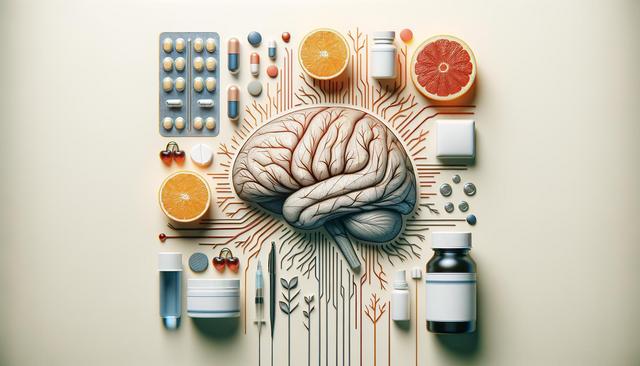The Link Between Medications and Mental Health
While medications are designed to treat or manage a variety of physical and psychological conditions, some have the unintended effect of influencing mood and emotional well-being. Studies have shown that certain pharmaceuticals can contribute to symptoms of depression, either by directly affecting brain chemistry or by triggering side effects that disrupt daily life. Understanding this connection is crucial, especially for individuals already vulnerable to mood disorders. Identifying medications that cause depression can help patients and healthcare providers make more informed decisions.
In many cases, the challenge lies in recognizing that mood changes may not stem from life circumstances or underlying mental health disorders, but could be linked to the medications being taken. This is particularly important when new symptoms appear shortly after starting a new drug. Some individuals may not connect their depressive feelings with their prescriptions, making it harder to address the root cause. Awareness of drugs linked to depression can empower patients to discuss concerns with their healthcare providers early on.
Common Categories of Drugs Associated with Depression
A variety of medications have been associated with depressive symptoms, either as a direct effect or through secondary mechanisms. These include drugs prescribed for cardiovascular issues, hormonal imbalances, and other chronic conditions. Among the most frequently mentioned in the list of drugs causing depression are:
- Beta-blockers – often used to manage blood pressure and heart conditions
- Hormonal medications – including birth control pills and hormone replacement therapies
- Anticonvulsants – prescribed for epilepsy or nerve pain
- Corticosteroids – used to reduce inflammation in conditions like asthma and arthritis
- Medications for Parkinson’s disease – which can affect dopamine levels in the brain
Each of these pharmaceuticals that induce depression may not affect everyone in the same way. Genetic factors, dosage, duration of use, and existing mental health history all play roles in how a person responds to medication. Therefore, it’s important to monitor emotional well-being as part of the overall treatment plan.
Antidepressants and Their Complex Role
Ironically, some antidepressants themselves can lead to emotional side effects, including worsening depression in certain individuals. This might seem counterintuitive, but it’s a documented phenomenon, especially during the initial stages of treatment or when discontinuing the medication. These antidepressants side effects can include mood swings, anxiety, agitation, or even suicidal thoughts in rare cases, particularly among younger patients.
It’s important to recognize that not all experiences are negative, and for many people, antidepressants are an effective part of managing depression. However, the key lies in close monitoring and communication with a healthcare provider. If symptoms worsen or new emotional challenges arise, adjustments in dosage or switching to another medication may be necessary. This underscores the importance of a personalized approach to mental health treatment, recognizing that even medications meant to alleviate depression can sometimes contribute to it.
When to Speak With a Healthcare Provider
If you or someone you know begins experiencing depressive symptoms after starting a new medication, it’s essential not to ignore these changes. While not every case of low mood is caused by medication, drugs linked to depression should be considered a possible factor. Some signs to watch for include:
- Persistent sadness or hopelessness
- Loss of interest in activities once enjoyed
- Changes in sleep or appetite
- Difficulty concentrating
- Thoughts of self-harm or suicide
These symptoms warrant a conversation with a medical professional, who can review your current medications and assess whether an adjustment may be beneficial. It is never recommended to stop taking a prescribed medication abruptly, as this can lead to withdrawal symptoms or worsen the condition being treated. Instead, a healthcare provider can help determine the safest and most effective course of action.
Reviewing and Managing Medication Plans
Maintaining a comprehensive and regularly updated medication list is one of the best ways to prevent or address medication-induced depression. This allows healthcare providers to evaluate potential interactions and monitor for adverse effects, especially when new prescriptions are introduced. A proactive approach to medication management includes:
- Tracking mood changes and noting any correlations with medication adjustments
- Scheduling regular check-ins with your healthcare provider
- Asking questions about the psychological side effects of prescribed drugs
- Seeking second opinions if depressive symptoms persist without clear cause
In some cases, alternative treatments with a lower risk of emotional side effects may be available. Patients should feel empowered to discuss all available options, including non-pharmaceutical interventions where appropriate. Ultimately, the goal is to support both physical and mental health through a balanced, informed treatment plan.
Conclusion: Staying Informed and Proactive
Understanding medications that cause depression is an important step in safeguarding your mental well-being. By being aware of the potential emotional side effects of certain drugs, individuals can better advocate for themselves and engage in informed discussions with their healthcare providers. Whether reviewing a current treatment plan or starting a new prescription, staying alert to changes in mood and seeking timely support can make a significant difference. For those navigating complex health conditions, a collaborative and well-informed approach remains key to achieving balanced and sustainable wellness.




Leave a Reply